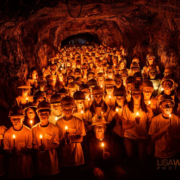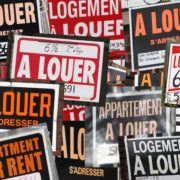Unionize with the IWW: "If we can do at Starbucks, we can do it everywhere "
 When Bank of America held a conference call to organize the protest of the Employee Free Choice Act, a bill deemed favorable to unions, one of the present executives launched the formula: "Starbucks problem".
When Bank of America held a conference call to organize the protest of the Employee Free Choice Act, a bill deemed favorable to unions, one of the present executives launched the formula: "Starbucks problem".
his concern ? Workers could follow the example of Starbucks baristas and form their own organizations without delay after the big traditional unions.
During the last five years, the union of workers of Starbucks (SWU: Starbucks Workers Union), member of the IWW, has managed to establish itself in several US cities, thus gaining hundreds of members. Initially present in a single branch in Manhattan, the union is now present everywhere in New York, but also to Minneapolis-St Paul, Grand Rapids, Chicago and elsewhere.
The SWU is making a breakthrough in a type of labor - workers trade low wage - several bureaucratic unions consider too difficult to organize. Fact, to USA, the employee-s trade are unionized-e-s as a proportion of 5%.
Since its formation, the SWU has won a series of important judgments, providing minimum protection to its militant-e-s against dismissal and the abusive practices of management to the union, while tearing gains for workers, the "baristas". Considering the difficult economic and political situation for workers today, Example of a union worries executives of major US banks certainly deserves some attention.
Starbucks likes to present itself as a company "socially responsible". In reality, Starbucks baristas to face the same problems faced by other commercial workers: variable and unpredictable hours, lack of health insurance plan [1], low wages and little or no job security.
« The heart of the problem comes down to this: Starbucks buys the work in the same way it purchases coffee beans or glasses of cardboard. », said Erik Forman, who works at Mall of America, near Minneapolis.
A major challenge is the management of working hours. If baristas want to work "full time", more than 32 hours per week, they must be available to 70 hours per week. « Starbucks uses an automatic management software schedules to determine work hours and hours each », Forman continues. « When the system projects a slowdown in sales a day or a particular week, then baristas lose work hours. »
Salaries and benefits also cause problems. In the Minneapolis area, starting salaries, from 6,50$ at 7,50$, are just higher than the minimum hourly wage statewide, who is from 6,15$. Wage increases will not generally follow that of the cost of living, and the result is that workers are seeing their real incomes decline year on year. And even if Starbucks boasts publicly offer health coverage, the company is less eager to ensure that its employees are effectively covered. Less of 42% e-s-employee of Starbucks are covered by the insurance scheme, a lower rate than that of Wal-Mart.
« It takes a minimum of worker 20 hours a week to qualify », Forman says. « With significant fluctuations in schedules and hours worked, workers, workers and their families often lose - blows six months – their medical coverage. »
The dissatisfaction with wages and working conditions at Starbucks set the stage for an organizational effort. in addition 2004, the Workers Starbucks Manhattan founded the SWU.
From the beginning, the company did everything to crush the union. "We wanted to negotiate with Starbucks our serious concerns", remembers Forman. « But rather than sit at the table with us, the boss preferred to hire anti-union consultants and entrusted to Edelman public relations, the largest public relations firm in the world. Edelman's mandate was to build a picture of social responsibility at Starbucks»
In the beginning, the workers asked the NLRB [2] to organize an election for union recognition. But Starbucks and maneuvered " used his political contacts that are included in the vote of recognition not only pro-union branch, but all branches of Manhattan. », raconte Forman.
The workers then realized they could not win this vote, and tried a different tactic. Unable to organize the traditional way an election supervised by the NLRB, they have turned to a more radical tradition: to fight for better wages, benefits and working conditions, and recruiting baristas even without official recognition NLRB.
As explained Forman:
« We decided to return to the basic tactics of the labor movement. Workers organized unions before 1935 - date of the NLRB - and well before having the right to organize. By developing a model of organization that works for the service industry, we returned to the roots of trade unionism, opting for a strategy that gives direct action central. We were able to grow because we did what the business unions consider unthinkable: we put the organization entirely in the hands of the baristas at the base. »
Forman explained that the SWU emphasizes what he calls the "solidarity unionism", based on the idea that " the workers are strongest where the bosses need most of them: on the workplace. Our power comes from our ability to refuse work, or disturb the production process of other ways. »
Last summer, au Mall of America, the employees confronted the bosses about the unbearable heat in the branch. Erik Forman describes the incident:
« We complained of the heat for years, but management refused to buy us a fan or install air conditioning because it was too expensive, while the store had a turnover of 30 000$ per week.
One morning, four of my colleagues went into the boss's office and launched an ultimatum. He refused… So my four colleagues have left the job, entered a car and went to a department store, leaving the boss operate alone coffee. He was livid.
Twenty minutes later, my colleagues returned with a fan 14$. They plugged, wrote over: "Presented by the IWW" and have pasted the cat Sabocat, the logo of the IWW.
Management had two choices: or removing the fan, placed for the real asshole, or leave it where it was, as a monument to their own negligence. They did the right thing. Two days later, the district manager arrived with an industrial fan 150$. Two weeks later, they started to install air conditioning. It, it is the power of direct action. One day, it is found that 40$ it's too expensive for the coffee temperature meets public health standards, and the following week, management expenditure 10 000$ to keep their employees happy. »
In the same way, in August 2008, a syndicated and single mother from the Bronx, Anna Hurst, suffered heat stroke at work, Starbucks in New York, and was removed against his will from the work schedule for two weeks. In response, a dozen baristas demonstrated in the branch during peak hours, asking that she be compensated.
Forman recalls another case at Mall of America where direct action to work quickly led to a victory:
« One of our colleagues had not been paid for a month because of a bureaucratic error. When we heard what was happening, we decided to immediately stop work and have asked our colleague receives his check. For about ten minutes, we told the client that we were on strike and we sent them elsewhere for their coffee. We called the district manager to complain. He came to the cafe later in the afternoon and wrote a check to our colleague. We won. »
In addition to denouncing the abuses of management at work, the SWU has organized pickets and rallies to draw attention to the union and the struggle of the workers against management.
« Since that time 2004, we made real progress », said Forman. « After months of pressure from union, Starbucks has granted a wage increase for baristas in the metropolitan area of New York 2006. We conducted many battles on issues such as occupational health and safety, discrimination, and unfair treatment that targeted Workers. Despite the national anti-union campaign Starbucks, The union continues to make sparks. »
Government reports show that Starbucks has spied on union-e-s (even after working hours), and that forward e-s-employed to reduce the ratio of favorable workers union. At New York, the company was found guilty of almost 30 violations of labor laws, including interrogations and wrongful dismissal of union members.
As explained Forman, the SWU " has had to fight tooth and nail for the right to exist as a union at Starbucks. "Starbucks has been forced to take four off-course arrangements with the NLRB over its violations of workers' right to organize. Starbucks has been forced to rehire the employee-s, to pay damages and make arrangements with the Union - for example, allow baristas to wear union button to work. The company also faces outstanding NLRB proceedings in New York, Minneapolis, Chicago and Grand Rapids, Michigan.
Erik Forman himself was fired for union activities last July. The day after his dismissal, workers of its branch made a protest, and more 50 Minneapolis baristas have signed a petition calling for his re-employment. In less than a month, he was rehired and was compensated for lost wages.
Nevertheless, Management continues to target militants SWU. « Recently, IWW barista Joe Tessone attempted to confront CEO Howard Schultz about the treatment of employee-s », Forman says. « Two weeks later, he was sent on specious bases. »
Faced with this level of harassment, Starbucks baristas have international solidarity at the center of their campaign, and organized a global day of action against Starbucks 5 July. That day, of French art-workers conducted a sit-in in Paris. Forman points out that:
«Starbucks is a global company, then we must be a global union. In addition to our work in solidarity campaigns, we are making efforts to build relationships with the farmers who grow coffee through our Justice Initiative, grain cup. We sent in Ethiopia Sarah Bender, a New York worker, to attend a meeting with coffee farmers who sought to Starbucks a decent price for their beans. »

Piquet protest against Starbucks
Even though Starbucks remains profitable, the company uses the economic crisis as a pretext to extract more juice from its employees. Management is closing branches and cutting hours, but without reducing the workload. In response, Starbucks workers staged pickets against layoffs and closures, against the lack of severance pay and against the acceleration of work rates.
« What comes to mind, this is the recent book by Naomie Klein, The shock strategy. », Forman says. « Even though Starbucks profits have plunged, the company remains very profitable, declaring more than 300 million profits last year alone. Despite this, Starbucks uses crisis language to push anti-worker agenda. »
Forman says company is putting a lot of pressure on its employees:
« First, they haven't increased the base salary for almost three years. Secondly, they are making new demands to make schedules more flexible in an “optimal” way, firing thousands of baristas while forcing the remaining ones to be available until 80 hours per week.
On top of that, they run branches with even less staff than before, leaving us to scramble to get the job done. And of course, since last summer, they are closing shops, firing the workers who made the profits of the last decade possible. »
Liberty Locke, a barista from New York, confided much the same thing to the newspaper La Grande Époque: « In my branch, dismissals were targeted at the employees who had the most seniority », she says. « They received no warning or notice, Starbucks wouldn't even let them finish their shifts, and they weren't getting layoff pay. »
The company has the money to avoid these cuts. So, when Starbucks recently purchased a corporate jet from $45 millions, SWU explained that this money “ could have provided 5 million additional hours of work for employees who need to work, or contribute for his insufficient retirement plan for three years.»
Given the importance of the Starbucks attacks and its very anti-union attitude, SWU gains are impressive. They show us how the spark for union renewal could come from outside the traditional unions. Other examples appear, like the two-week strike by non-union workers at the Cygnus soap factory, in Chicago in 2007, and the recent occupation of Republic Windows and Doors, again in Chicago in December 2008, by the independent union UEW.
On their side, SWU activists see themselves as part of the tradition of militant trade unionism, whose IWW have always been the champions in the USA since their founding in 1905.
« There is a direct link between the revolutionary vision of the IWW and the daily dynamics of the solidarity unionism of the Starbucks campaign ”, Forman says. “Our message to workers is this: if we can do it at Starbucks, we can do it anywhere. It is possible to organize, even at Starbucks, even at the Mall of America. »
To know more:
www.StarbucksUnion.org
iww.org





Leave a Reply
Want to join the discussion?Feel free to contribute!